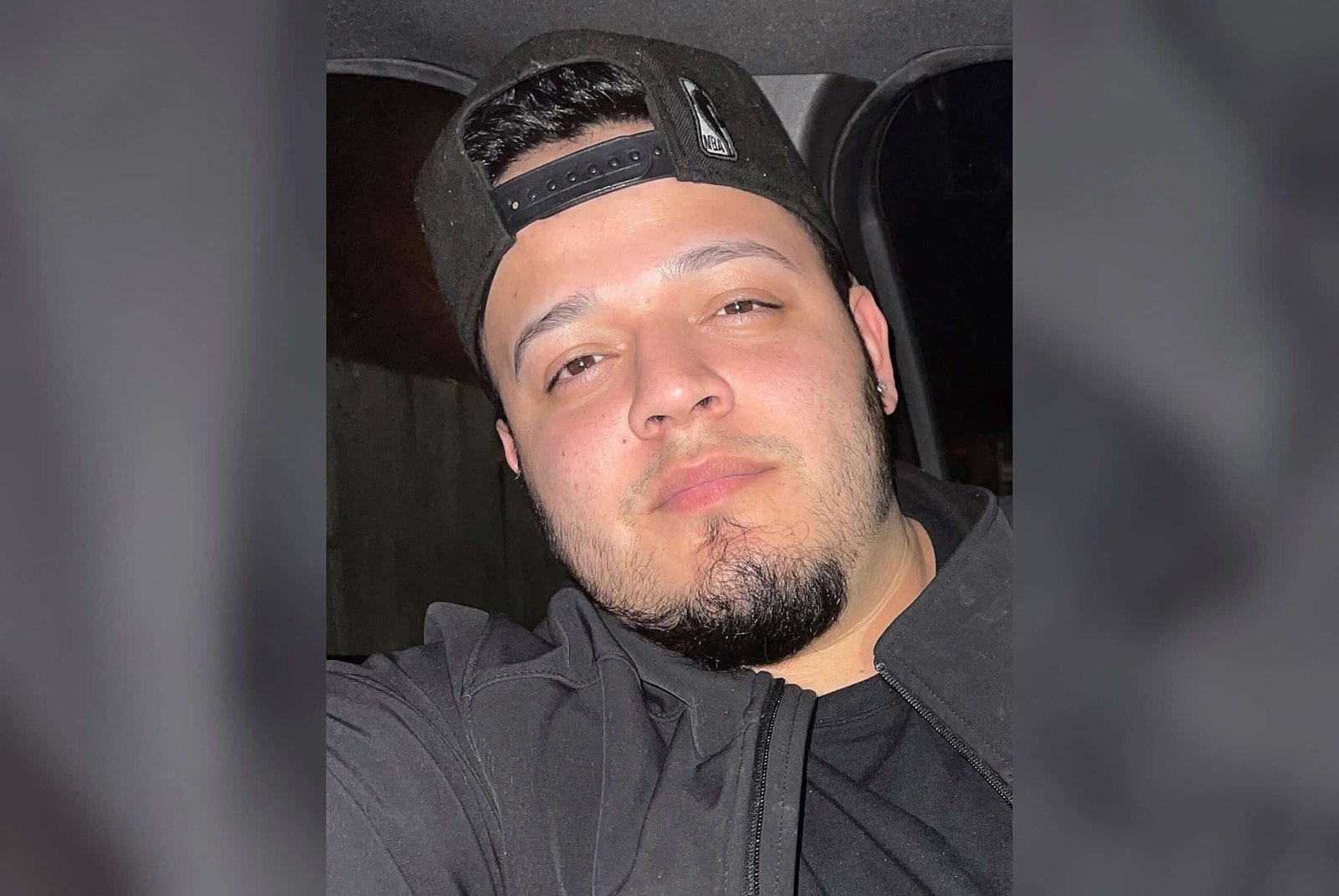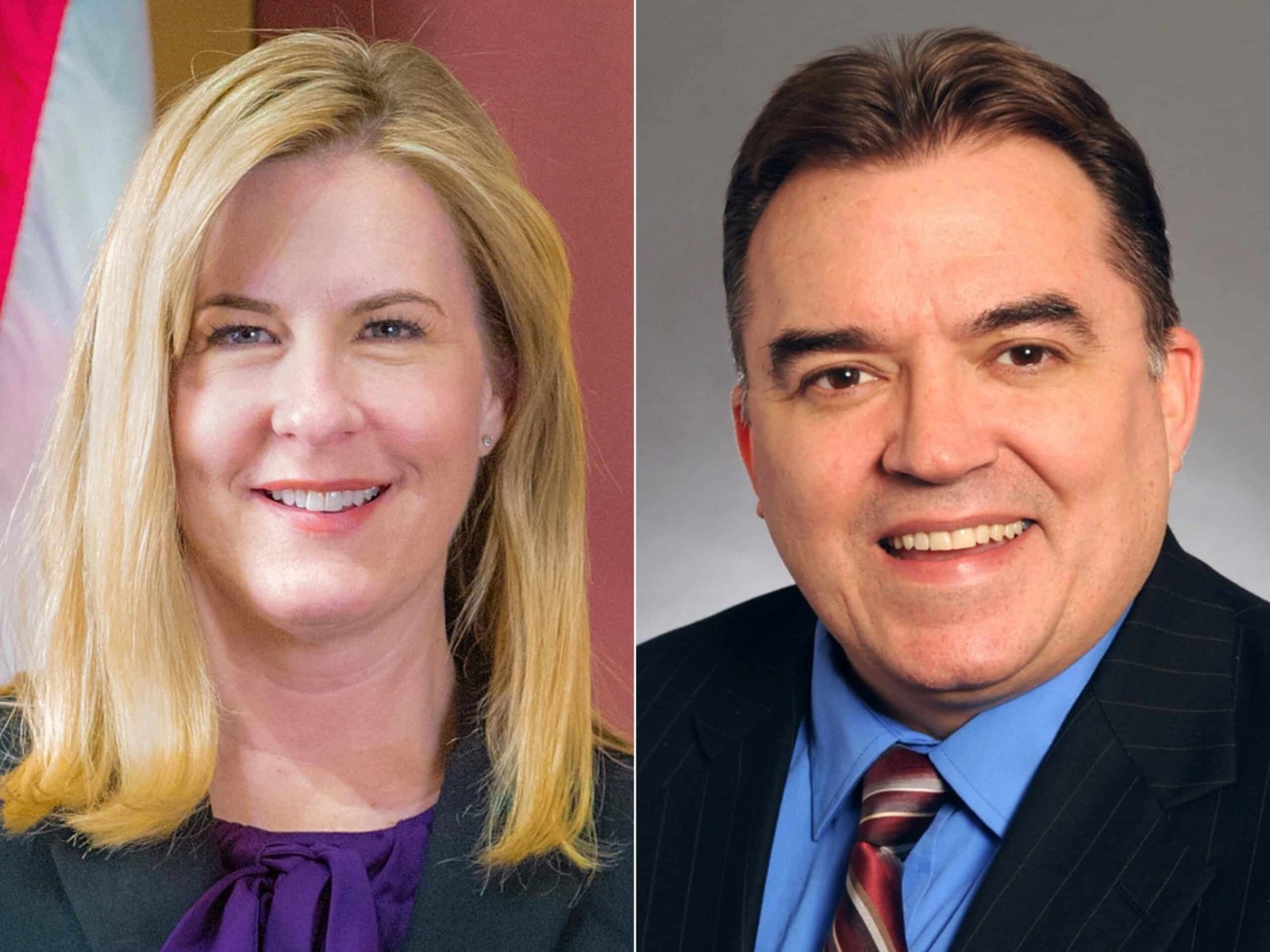Kilmar Abrego García declared himself innocent on Friday of human smuggling positions, and the judge in case he would expect to issue a decision about whether he should be released from custody waiting for trial.
A week after he was taken back to the states of Sinito de la Deteno in El Salvador, Abrego García presented himself to his statement of non -guilt in his reading of positions in Tennessee, where federal prosecutors have accused him of transporting the migrants unnegatized within the United States to what they say it was a conspiracy that involves the internal transport of thousands of non -criticizing of the Mexicans of the Mexican America, including children, in exchange for Dolls de Dolls.
After her plea, the American magistrate judge Barbara Holmes listened to arguments about whether she should continue to be arrested, after which she said she would probably issue a written order in the near future, “soon that later,” he said.
The prosecutors recognized in a judicial presentation on Monday that Abrego García would surely be arrested immediately by ICE if Judge Holmes would deny his motion of detention prior to trial, but asked the court to consider, for the argument, that “he would have a huge reason to flee” if he was not immediately arrested for ICE.
Much of the government’s testimony in support of prior detention to the trial came from the special national security agent, Pete Joseph, who testified about his investigation on the 2022 traffic stop, where Abrego García was arrested for speeding in a vehicle with eight passengers and told the police that they had been working on the construction in Missouri.
The Tennessee road patrol officers finally did not issue a speeding ticket and allowed Abrego García to continue with only one warning about an expired driver’s license.
As ABC News previously reported, the criminal investigation that led to the charges was launched in April when the federal authorities began to analyze the traffic stop.

Kilmar Abrego García, a Salvadoran migrant in this booklet image obtained by Reuters on April 9, 2025.
Abrego Garcia Family Via Reuters
Joseph testified that the law agents stopped the vehicle asked those who were in the car to write their name, date of birth and where they were traveling, which was described in the court as a “list” of who was traveling in the car. A person on the list was a child under 15, according to the list provided to the Police, an evidence that the government alleges demonstrates that Abrego García also transported minors.
The judge dealt with how much weight giving that information, since the soldier of the Tennessee road patrol was not in court to testify specifically on the list.
“I am not telling you that I am discarding it completely,” said Judge Holmes, who added that he was not sure that he was willing to accept that because the person was minor meant that he was a minor victim.
Joseph also testified that some of the alleged conspirators and witnesses who spoke with federal authorities alleged that Abrego García sometimes transported non -citizens with his wife and children. His children, Joseph said, sat on the car floor.
The US prosecutor Robert McGue argued that he showed that there was a danger to the children of Abrego García, whom he allegedly used as “cover.”
“He would present, his honor, that his children were at risk,” said McGuare. “It’s a dangerous business. And it was dangerous for your children.”
The lawyers representing Abrego García pressed Joseph about the so-called witnesses and co-conspirators received in exchange for his testimony.
José Ramon Hernández-Reyes, the owner of the car that Abrego García drove, and the main witness of the government, is a criminal twice that he returned to the country five times, according to Joseph.
Reyes, who served a 30 -month prison sentence for illegal re -entry, was recently sent to a house halfway due to security concerns, a point where Abrego García’s lawyers focused during his interrogation.
Abrego García has been the subject of a prolonged legal battle since he was deported in March to the mega prison of El Salvador, despite a 2019 court order that except for his deportation to that country due to the fear of persecution, after the Trump administration said he was a member of the MS-13 criminal gang, that his family and lawyers denied.
The Trump administration, after arguing for almost two months that he could not be back, returned the United States last week to face an accusation of two positions claiming that, while living with his wife and children in Maryland, he participated in a conspiracy of years to transport undocumented migrants of Texas inside the country.
In addition to arguing that Abrego García represents a risk of escape, the government argues that the alleged MS-13 of Abrego-García put him at risk of trying to obstruct justice or intimidate the potential witnesses against him, including his alleged co-conspirators.
“The United States would affirm that at least one co-conspirator has described that the defendant has previously used his membership in MS-13 not only to facilitate his illegal activity in the conspiracy of smuggling, but also to intimidate others in the conspiracy that he tried to face him about the treatment of female victims and their consumption of firearms and the drug addiction of the conspiracy, the risk of conspiracy and the risk of conspiracy, detection and was not the risk that the consumption of conspiracy and the risk of conspiracy and the risk of conspiracy was not added and the risk of conspiracy is not added and the risk of the conspiracy, and the consumption of which a conspiracy consumption was added.
In response, Abrego García’s lawyers said in a presentation on Wednesday that the Trump administration arguments for a detention hearing have no merit.
“Nor should it surprise us that the Government has not cited a single case that maintains that a generic position of smuggling foreigners provides reasons for a detention hearing,” Abrego García’s lawyers said. “This case should not be the first.”
Abrego García’s lawyers also argued in the presentation that their client is not a risk of escape, and said that the government “points out zero facts” that suggests that Abrego García has a history of evading the arrest, has previous restrictions, or has “systematically participated in international trips in the recent past.”
The lawyers also argued that there is no “serious risk” that Abrego García obstructs justice, arguing that the “accusations of affiliation of gangs without foundation” of the government do not support a finding that it raises a “serious risk” of obstructive behavior.
“[The] The Government has no right to seek detention in this case, Mr. Abrego García respectfully asks the court to deny the government detention motion, “said lawyers.




